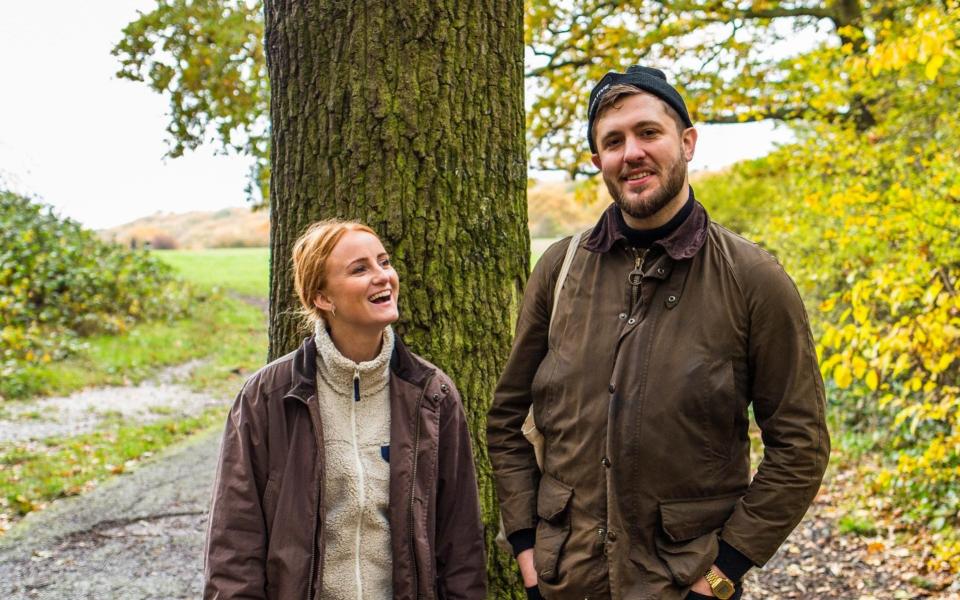Closing time: London's restaurateurs are leaving the city in the wake of Covid for pastures new

There’s no denying that this year has been incredibly tough on the hospitality industry. Between two national lockdowns, furlough schemes to navigate, and unprecedented loss of earnings, it’s a wonder so many restaurants have survived the pandemic, and indeed there are many that haven’t. And yet a small collection have managed to turn a terrible situation into an opportunity.
Ivan Tisdall-Downes and Imogen Davis have done just this. The pair opened Native in 2016, after spending their post-university years selling jams and chutneys at London food markets. Having grown up in rural Northamptonshire with parents who owned a falconry and championed nose-to-tail eating before it was fashionable, Imogen had always been comfortable working with game and wild food.
She and Ivan soon made a name for themselves on the food market circuit with their wood pigeon kebab, before the opportunity to open a site in London’s Neal’s Yard presented itself. With a tiny budget and a government grant, the pair opened Native to great success, capturing a zeitgeist for beautiful-looking farm-to-fork dishes celebrating local producers and seasonality. Native later moved to Southwark Street near Borough Market and remained there until Covid came along and made the concept untenable.
“We were planning to reopen Native, and had plans for a second London site, but then lockdown happened and we couldn’t do either,” says Imogen. With no outside space and only a small number of tables inside the restaurant it wasn’t really set up for social distancing, and so the pair made the difficult decision to close.
“We were kitchen-less for the first time in four years and it made us take stock and reassess what we wanted to do. Then out of the blue in August, we were offered an opportunity to run a restaurant on Osea, an island off the coast of Essex. We jumped at it. I’d never even been to Essex before!”

Osea Island might not seem like an easy escape route. For a start, to get to Osea you have to drive across a Roman causeway – only accessible during low tide – or catch a well-timed ferry. But being so close to farms and local fisheries, not to mention all the coastal foraging available to them in Essex, is something that Ivan and Imogen couldn’t turn down.
“Our long-term goal for Native was to be as self-sufficient as possible and to truly be able to live off the land. We found it difficult to achieve this in London where we didn’t have the buying power to get the best produce every time,” says Imogen. “At Osea we’re dealing with suppliers who are all under 10 miles away. It means that we can serve things like North Ronaldsay lamb from Lauriston – a biodynamic farm just across from Osea Island, huge halibut from Mersea Island and of course lots of seaweed, marsh samphire and other foraged coastal plants.

“We also hope to adopt the Swedish model of four working days per week; to work less and live more. That’s not really possible in London because rents are so high that you need to work a lot to make a restaurant worthwhile.”
Inspired also by the now-closed Fäviken, where diners had to travel deep into the Swedish countryside to dine, and subsequently stay overnight, to visit Native, diners book a package that includes your passage to the island by land or sea (six at a time to meet current Covid restrictions), time to explore the island on bikes or on foot, followed by Blackwater and West Mersea oysters and English fizz on the beach and a ‘15 Moments’ tasting menu at the restaurant itself.
“We think restaurants today have to be memorable experiences and we’ve tried to make Osea as experiential as possible to offer people the best experience possible for their money. It’s nice that the island has been able to help us elevate our offering.”

In the wake of Covid, other London restaurants have performed similar knee-jerk reactions and seemingly found success. Covent Garden’s L’Escargot moved its whole team to Aldeburgh on the Suffolk coast in August, saving their staff from an uncertain future. The concept was meant to be a popup, but owners of the Soho institution are experiencing such success with L’Escargot-sur-Mer that they’re planning on making the site permanent.
Native owners Ivan and Imogen still have plans to open a smaller sister restaurant in London but for now the pair are looking forward to being able to open Native Osea on December 4.
“It’s with a huge sigh of relief that we will be able to welcome guests to our beautiful, safe haven of an island from December 4. We hope to be able to give people a much-needed reprieve from the chaos of 2020.”

